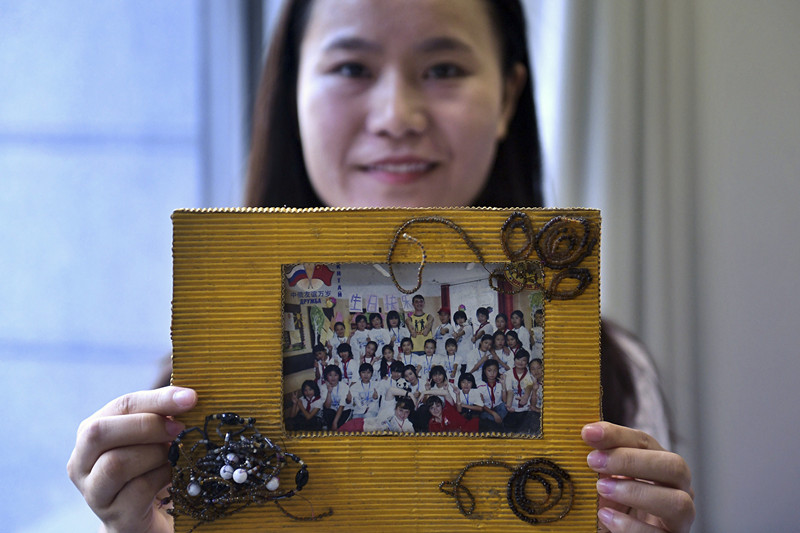Quake victims visit Russian caregivers
 0 Comment(s)
0 Comment(s) Print
Print E-mail China Daily, September 10, 2018
E-mail China Daily, September 10, 2018
He Yujiao was excited to return to Far East Russia's Vladivostok, a city that helped her physically and mentally heal from the massive Wenchuan earthquake of 2008.

Nearly 70,000 people died and about 18,000 were missing after a magnitude 8.0 earthquake devastated the county in Southwest China's Sichuan province. He was traumatized-her father had died.
After the earthquake, Russia raced to extend a helping hand.
Then-Russian president Dmitry Medvedev agreed with then-president Hu Jintao to invite 1,570 primary and high school students from the Wenchuan quake zone to recuperate in Russia.
During a state visit to Russia in March 2013, President Xi Jinping recounted at the Moscow State Institute of International Relations the heartwarming story of Russia's prompt assistance.
He, now a 21-year-old law student at Ningbo University in Zhejiang province, was one of the students taken to the Ocean All-Russia Children's Care Center in Vladivostok in 2008.
When she arrived, tired and devastated, the Russian teachers and students welcomed her and the other survivors in Chinese and helped them feel at home.
The staff prepared spicy noodles, food the children ate at home, to help them feel at ease. The location also helped. They awoke to the sound of the ocean surf, which had a soothing effect. The children were encouraged to swim and to skate.
"Our plan was to help them leave behind the memories of the tragedy," said a teacher at the center who gave her name only as Courova.
When it was time for the children to return to China, almost every one had gained weight. They hugged their teachers and friends and promised to come back one day.
Forty-one young people who visited Russia after the Wenchuan earthquake at the invitation of the Russian government are now revisiting the country for one week.
The youngsters whose homes were in quake-affected regions in Sichuan, left the provincial capital of Chengdu for Beijing on Friday.
They reached the Russian city on Saturday morning, said Liu Fei, an official from a newspaper affiliated with the Sichuan Department of Education.
Liu will accompany the youngsters to Vladivostok to conduct cultural exchanges with locals. The Chinese youngsters will sing Russian songs and perform traditional Tibetan and Qiang dances for Russian audiences, he said.
He said she is so happy to again see the center, of which she has so many happy memories. During her three-week stay in Vladivostok, she saw the sea for the first time, and a Russian teacher taught her how to make a ceramic baby.
As He did not have an English name, a young Russian volunteer gave her own name, "Rechael", to her.
"The young Russian videographer who filmed our life for 21 days knew a little Chinese," He said. "He would tell jokes in Chinese to make us laugh. Thanks to them all, we forgot the sorrow caused by the quake, and our peace of mind returned."
Back at the center, Courova and other teachers were busy decorating the classrooms with Chinese paper cuttings and calligraphy, getting ready for the reunion with their Chinese students.
"Have they changed? Grown taller?" Courova asked with the same excitement a mother might show talking about her long-missed children.






Go to Forum >>0 Comment(s)